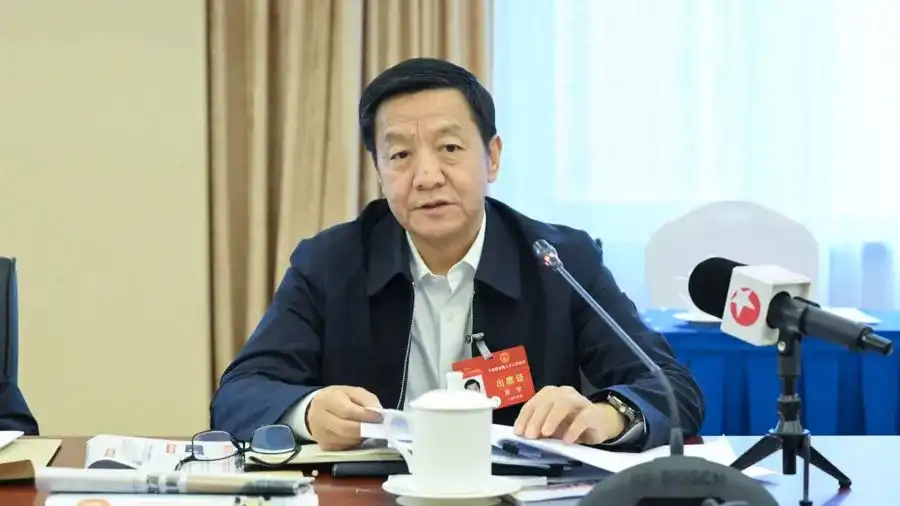Shanghai court:Equally protect Chinese and foreign enterprises in accordance with the law and help increase foreign investment willingness

Today (9th), deputies to the National People's Congress reviewed the work reports of the two supreme courts. The reporter interviewed Jia Yu, a representative of the National People's Congress and president of the Shanghai City Higher People's Court, on some topics of concern to all sectors of society in the report.
ask:All sectors of society have high expectations for the construction of a legal business environment, and the Supreme Court's report devoted a lot of space to it. What plans does the Shanghai court have in this regard this year?
** Jia Yu:** Recently, we formulated and issued the "Shanghai Court Special Action Plan to Further Promote the Construction of a Legal Business Environment (Version 7.0)", which mainly includes five new measures and tasks:
The first is to refine and improve the regulatory system framework,研究提出加强对仲裁程序的司法支持、探索完善环境损害赔偿责任纠纷案件审理程序和实体规则等7项改革举措。
The second is to optimize the trial execution working mechanism,提出优化诉讼各环节机制流程、强化涉营商环境重点案件审理等7项改革举措。
The third is to give full play to the effectiveness of digital reform,提出深化“数助营商”改革探索、推进破产案件全流程网上办案系统建设等多项改革举措。
The fourth is to promote openness and transparency in judicial procedures,大力推进庭审公开、加强法院人员数据公开、完善企业破产信息公示机制等措施。
The fifth is to strengthen the coordination between the government and the hospital,提出推进办理破产府院协调机制、司法鉴定机构行政监管机制完善等4项改革举措。
ask:Some companies feel that it takes too long to go to court to file a lawsuit. How can Shanghai courts improve this "pain point"?
贾宇:Last year, Shanghai courts focused on reducing the cost and time for business entities to participate in litigation, and made in-depth efforts from three aspects: adhering to mechanism driving, process control, and opening up blockages. 一审商事案件审理期限缩短10.8%,鉴定评估用时缩短20.7%。
This year, Shanghai courts continue to put forward new requirements and deploy new tasks around reducing the litigation time and cost of business entities. For example, focusing on the "long-standing problem" of slow and expensive identification, version 7.0 has studied and proposed four specific measures. We will strengthen communication and coordination with relevant departments and continue to promote cost reduction and speed up the judicial identification process.
ask:The exit mechanism for market entities is an important part of the business environment. Some people believe that China's current corporate bankruptcy law is difficult to match the needs of enterprises, especially small and micro enterprises. How do you view this issue?
** Jia Yu:** The BR assessment of the World Bank's Business Environment uses "bankruptcy processing" as one of the 10 indicators to evaluate a country's business environment, which fully demonstrates the importance of the bankruptcy protection system to a country's economic development.
In recent years, Shanghai courts have made a series of innovative explorations around corporate bankruptcy protection. 比如,为小微企业提供快捷、简单、灵活和低成本的破产保护机制,使无生命力的小微企业得以快速清算,促进有生命力的小微企业涅槃重生。这些创新实践在一定程度上提升了市场主体对“办理破产”的获得感、满意度。
China's Enterprise Bankruptcy Law has never been revised since its adoption in 2006 and cannot fully comply with current development requirements. In recent years, courts in various places have actively carried out innovative practices of "handling bankruptcy" under the guidance of the Supreme People's Court. However, due to the lack of support from a unified legal system, there are institutional barriers to reform and innovation in practice, which is not conducive to the formation of a unified national bankruptcy market. Therefore, at this year's National Two Sessions, I submitted a bill on amending the Enterprise Bankruptcy Law, hoping to fix the useful practical explorations of local courts in the form of legal provisions and improve legal certainty.
ask:When it comes to the business environment, many foreign-invested and foreign companies are very concerned about whether Chinese laws can equally protect all enterprises. What do the Shanghai courts do?
** Jia Yu:** It can be said that the Shanghai courts have always adhered to equal protection of the legitimate rights and interests of Chinese and foreign parties in accordance with the law, and helped enhance the investment willingness and judicial expectations of foreign and foreign investors.
I can give many examples. In a foreign-related ship financing case, two Italian financial institutions wrote in a letter stating that they felt the same judicial treatment as in litigation in their own country; in a foreign-related commission contract dispute case, the court respected the parties 'choices and applied English law to hear the case. Neither party appealed after the first-instance judgment; In the case of SPAR Shipping Co., Ltd. applying for recognition of British court judgments, under the guidance of the Supreme People's Court, it adopted the legal reciprocity standard for the first time to recognize foreign court judgments, demonstrating the Shanghai court's positive attitude towards expanding opening up and promoting international judicial mutual trust.
**
